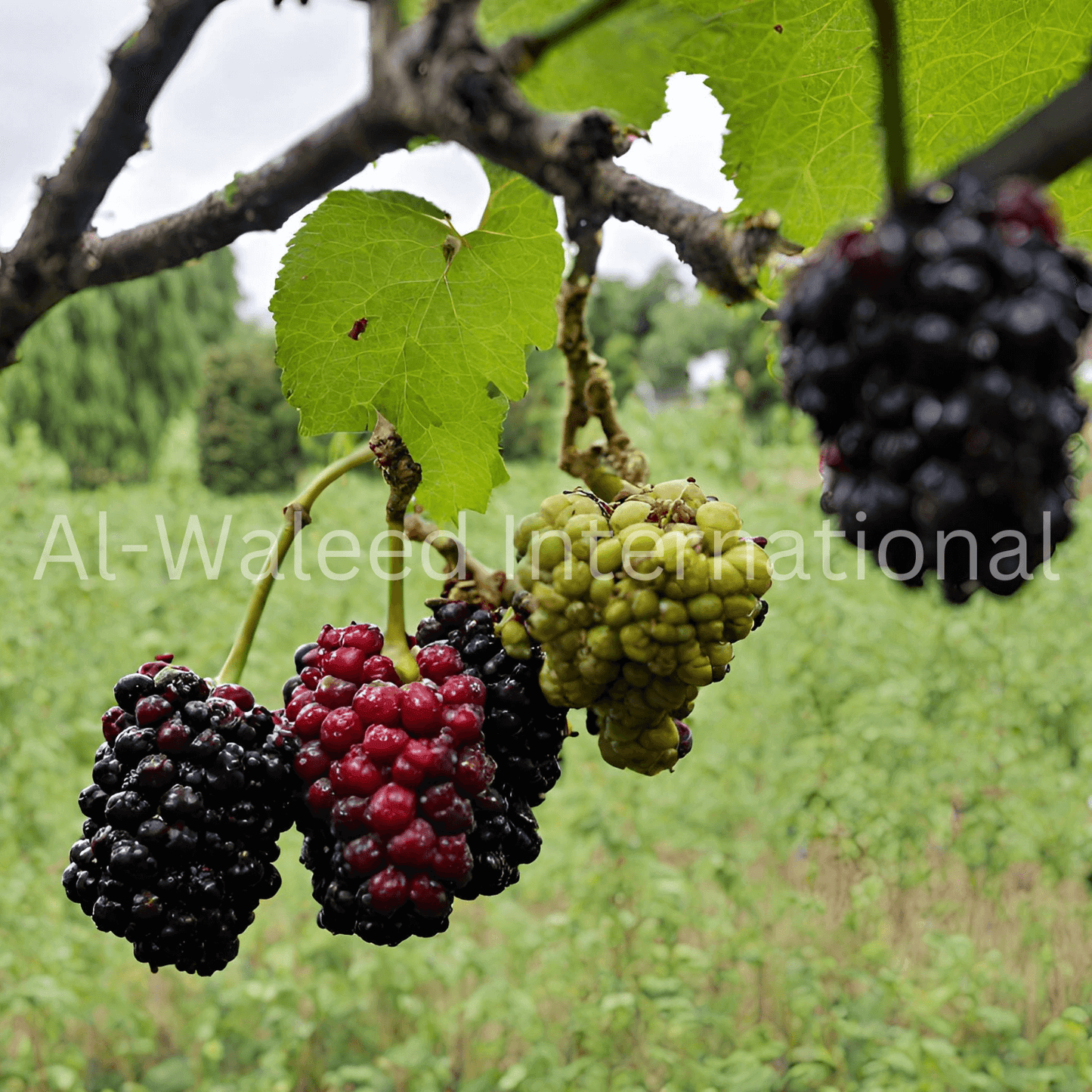Al-Waleed International
Dried Mulberry Fruits (Morus Alba)
Dried Mulberry Fruits (Morus Alba)
Couldn't load pickup availability
Description:
Mulberry (Morus alba) is a deciduous tree native to Asia, and it is known for its sweet and juicy fruits. The tree typically reaches a height of 30-40 feet and has broad, lobed leaves. The fruits are small, usually red or black when ripe, and they grow in clusters resembling blackberries.
Certifications:
- USFDA
- Non-GMO
- ISO 9001; 2015 HACCP
Uses:
Edible Fruits: Mulberries are primarily grown for their delicious fruits, which can be consumed fresh or used in various culinary applications, including pies, jams, jellies, and desserts. They have a sweet, tart flavor and are often likened to a blend of blackberries and raspberries.
Silkworm Rearing: The leaves of the mulberry tree are the primary food source for silkworms (Bombyx mori). Silk production is dependent on the cultivation of mulberry trees as silkworms exclusively feed on their leaves.
Traditional Medicine: In traditional medicine systems like Traditional Chinese Medicine (TCM), various parts of the mulberry tree, including the leaves and bark, are used for their potential medicinal properties. They have been historically employed to treat conditions such as diabetes, fever, and inflammation.
Mulberry Tea: The leaves of the mulberry tree can be dried and used to make mulberry tea. This tea is believed to have health benefits, including potentially lowering blood sugar levels and aiding in weight loss.
Benefits:
Rich in Nutrients: Mulberries are a good source of vitamins and minerals, including vitamin C, vitamin K, vitamin E, iron, potassium, and dietary fiber. They are also a source of antioxidants, such as anthocyanins and resveratrol.
Antioxidant Properties: Due to their antioxidant content, mulberries may help combat oxidative stress and reduce the risk of chronic diseases like heart disease and cancer.
Blood Sugar Control: Some studies suggest that compounds in mulberries, particularly those found in the leaves, may help regulate blood sugar levels, making them potentially beneficial for individuals with diabetes or those at risk of developing it.
Weight Management: Mulberries are relatively low in calories and high in fiber, which can contribute to feelings of fullness and aid in weight management.
Heart Health: The antioxidants and fiber in mulberries may promote heart health by reducing the risk of cardiovascular diseases, such as hypertension and atherosclerosis.
Skin Health: The vitamin C content in mulberries can support collagen production, which is essential for healthy skin. Some skincare products also include mulberry extract for its potential skin-brightening properties.
Note: It's important to note that while mulberries offer several potential health benefits, individual responses may vary, and more research is needed to fully understand their effects. If you have specific health concerns or conditions, it's advisable to consult with a healthcare professional before incorporating mulberries or mulberry-based products into your diet or wellness routine.
Storage Instructions: Store mulberry fruits in the refrigerator in a perforated plastic bag to maintain freshness.
Health Precautions/Disclaimer:
We do not intend to diagnose, treat or prevent any disease or ailments.
Share


